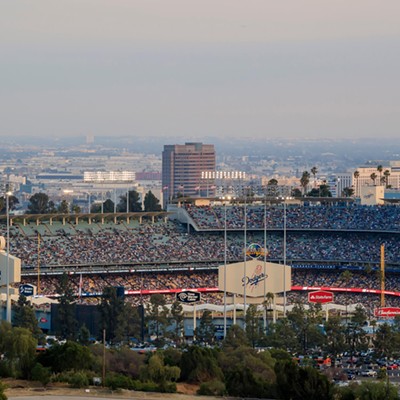Government by ballot initiative is, at best, a mixed bag, with the occasional modest success temporarily deflecting attention from a steady stream of badly written, poorly focused and mostly unnecessary propositions.
Many passed propositions do relatively minor damage, but every now and then, a proposition comes along that is so obviously flawed, so fully capable of doing serious damage—both in the short term and the long run—that it is difficult to imagine who could possibly be in favor of it.
The current disaster-in-waiting is Proposition 121, which would destroy the way Arizonans conduct elections (with party primaries) and replace it with a ridiculous top-two system where everybody (including people from all parties and those from no party) is thrown into a big pile, with the top two finishers moving on to the general election. The most generous assessment of it is that it is a solution in search of a problem.
I could give you three mathematical scenarios where the system could be subverted, but the people behind this monstrosity probably aren't moved by the logic of math ... or reality, for that matter.
Prop 121 is being backed by something called the Open Elections/Open Government campaign. This, by itself, should send you screaming into the street. Open Elections/Open Government sure sounds purty, don't it? Then again, so did Clean Elections, and what has that gotten us other than the worst TV commercials of all time? It's like someone channeled the spirit of Ed Wood and then gave him a bunch of taxpayer money to play with.
Have you seen the latest Clean Elections commercial? It has the mere mention of the word "politics," turning Granny into a Mexican wrestler, complete with luchador mask and cape. Then there's a narrator who, for some unknown reason, is dressed up like Barry Manilow. He says that Clean Elections will help us watch debates. I didn't know we needed help with that.
Anyway, just because something has a good-sounding name doesn't make it good for us.
One of the few redeeming qualities of California—the place where good ideas go to die, and bad ideas become part of the state's Constitution—is that the people in that state tend to try out crackpot notions before everybody else, and the rest of the country can observe and take notes. California is currently operating under a law that is the model for Prop 121. Let's see how it did.
In the recent California ("top-two") primary, only 14 of the 80 races for the State Assembly resulted in the top two finishers coming from the same party. In the state Senate races, it was even more stark: Ninety percent of the races resulted in one person from each party making up the top two. And, oh yeah, voter participation was down, with only about 5 million of a possible 23 million eligible voters (22 percent) bothering to vote. Not exactly a smashing success.
The main problem with the proposal is that it's based on two false premises. The first is that it would somehow be better if partisanship were removed from the political process. While we are certainly in a bad place in American politics—with shortsighted and selfish people on both sides refusing to act like adults—it hasn't always been that way, nor should we automatically expect it to stay that way. America has a history of producing visionary leaders when we really need them.
Then there is the truly cockeyed idea that moderates are somehow wiser, more politically astute and better able to get things done. This sounds like something that should be right, but it isn't.
Let's look at the great presidents we've had in this country. I assume that most of us agree that Abraham Lincoln was our greatest president. If you think about it, Lincoln was probably the least moderate president in U.S. history. He was willing to squoosh half the country like a bug just to prove his point that it wasn't OK for some people to own other people.
Teddy Roosevelt took on people who were rich enough to buy the country because he knew that too-big business wasn't good for the country. He also created the national parks to help keep the fat cats from raping the land for short-term gain.
Teddy was no moderate, and neither was Franklin Roosevelt, who steered the country out of the Great Depression and then successfully waged a world war on two fronts. (Despite his flaws, I also consider Lyndon Johnson to have been a great president because of what he did for civil rights.)
Some may even consider Ronald Reagan to have been great. Whatever the case, these men were not moderates. They couldn't have been even if they had wanted to; the times in which they served required a clarity of vision and a stiffness of backbone.
This does not mean that moderates don't have the right to run for office and to serve. But this quest for a homogeneity of elected officials, all moderates squeezing toward the middle, is not a recipe for success. It's a capitulation of ideals.







